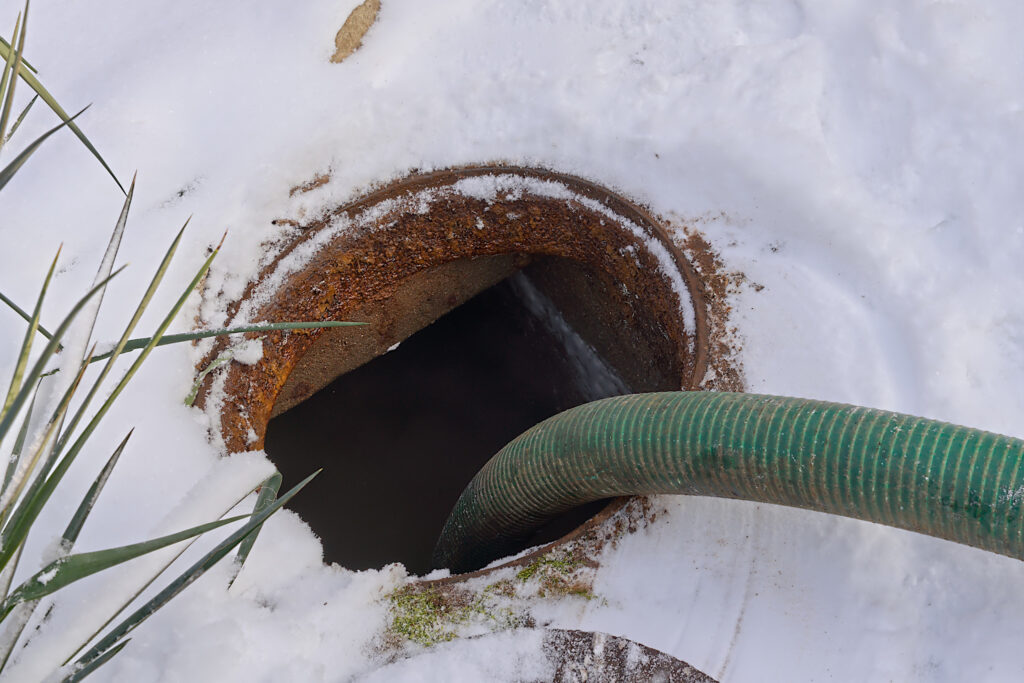
Winter in off-grid homes comes with its unique set of challenges. Among these, a frozen septic system can quickly become a major headache. Whether it’s sub-zero temperatures or improper insulation, a frozen septic system can halt your household operations and pose serious health risks. This article explores why septic systems freeze, how to prevent them from freezing, and what to do when they do freeze.
Why Do Septic Systems Freeze?
Septic systems are vulnerable to freezing due to several factors:
- Cold Climate Exposure: Off-grid homes often lack the insulation typical of urban homes, leaving the septic system more exposed to freezing temperatures.
- Lack of Usage: Reduced water flow during winter months can cause pipes and tanks to freeze.
- Improper Installation: Shallow septic lines and tanks closer to the surface are more susceptible to freezing.
- Minimal Insulation: Lack of insulation around septic tanks, pipes, and drain fields can exacerbate freezing.
Signs Your Septic System Is Frozen
Recognizing a frozen septic system is crucial for prompt action. Common symptoms include:
- Slow Drainage: If your sinks and toilets drain slowly or not at all, freezing could be the culprit.
- Unusual Smells: Odors near drains or outside around the septic tank indicate blockages caused by ice.
- Standing Water: Pooling water in your yard, especially near the drain field, is a warning sign.
- Gurgling Sounds: Bubbling or gurgling noises from pipes suggest airflow issues caused by ice blockages.
Preventing a Frozen Septic System
Prevention is the best cure when it comes to winterizing your septic system:
- Add Insulation: Spread a thick layer of mulch, straw, or hay over the septic tank and drain field for insulation.
- Let Water Flow: Consistently run water through your system, especially during extreme cold spells, to prevent freezing.
- Use Heat Tape: Apply heat tape to exposed pipes to maintain warmth during cold snaps.
- Schedule Maintenance: Regular professional inspections can identify vulnerabilities before winter strikes.
What to Do If Your Septic System Freezes
If you suspect your septic system is frozen, follow these steps:
- Limit Water Usage: Reduce water usage immediately to prevent further complications.
- Identify the Frozen Area: Check exposed pipes and tanks for frost accumulation.
- Apply Warmth: Use a heat gun or warm towels to thaw exposed pipes gently. Avoid using open flames.
- Call a Professional: If you can’t pinpoint or safely thaw the frozen area, professional plumbers like Duty Calls Plumbing can diagnose and resolve the issue effectively.
Why Off-Grid Homeowners Trust Duty Calls Plumbing
At Duty Calls Plumbing, we understand the unique plumbing needs of off-grid homes. Whether it’s frozen septic systems or other winter-related plumbing issues, our experienced team provides fast, reliable solutions tailored to your needs.
Here’s why clients across New Castle, Muncie, and Indianapolis trust us:
- Expert Repairs and Maintenance: From frozen lines to septic tank repairs, we’ve got you covered.
- Emergency Response: Winter doesn’t wait, and neither do we. Call us anytime for prompt service.
- Transparent Pricing: With our no-nonsense pricing, you’ll never encounter hidden fees.
- Customer Satisfaction: From sump pump installations to leak repairs, we’ve built a reputation for excellence, as reflected in our 5-star reviews.
Don’t let a frozen septic system disrupt your winter. Call Duty Calls Plumbing today for a consultation or emergency service. Let us keep your plumbing flowing smoothly all season long!
Need assistance? Call us now at 765-215-2101 or visit our website to learn more about our plumbing services. When duty calls, we’re here!
